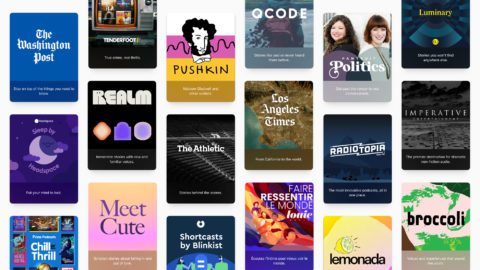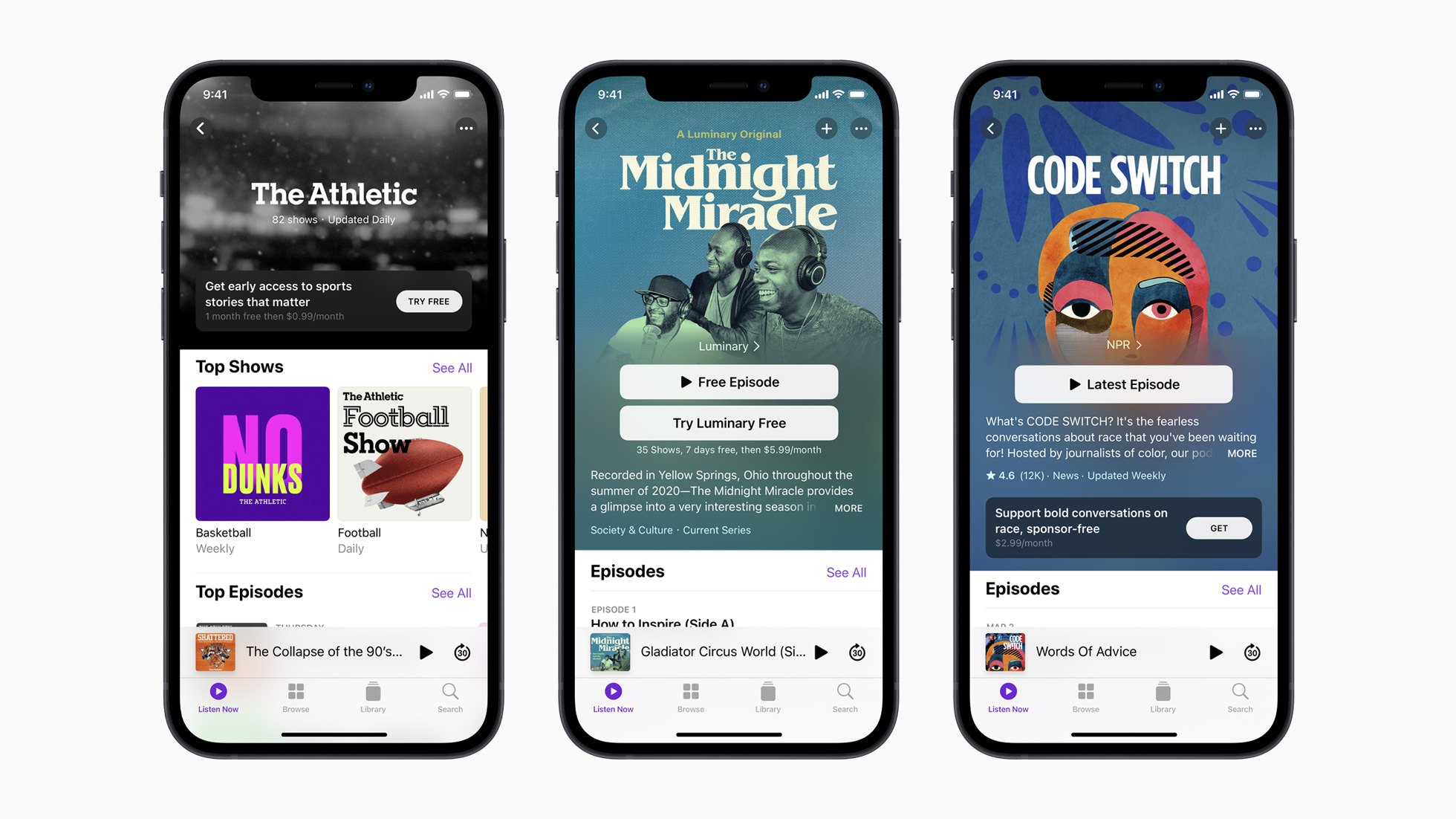How a rush to monetization could end an open system
Apple’s influence in podcasts is evident within the very word, which is derived from the famous iPod music player and the term ‘broadcast.’ The company’s interest in and support for the format has resulted in steady growth of an industry filled with giants and independents alike.
But after years of being a seemingly benevolent overlord, everything is set to change. Apple’s adding paid subscriptions to its Podcasts app, and things will never be the same again – for good or ill.
What’s Apple doing?
The Podcasts app will enable podcast creators to add paid tiers to their shows. The relevant tools will cost creators $19.99 per year, along with a 30% cut of proceeds from the first year and 15% thereafter.
Monthly pricing for the subscriptions themselves will be set by creators, who will also be able to offer annual subscription rates, free trials, early access to new shows and sample episodes. From the listener’s standpoint, subscribing will be as simple as with any other subscription on an iPhone – and easily managed on the device itself.

Is this a good thing?
There’s a lot to like about what Apple’s doing. Apple is not alone in enabling podcast creators to make money – there are plenty of existing systems for doing so. But Apple’s tendency to make these things seamless reduces friction.
This might increase the money podcast creators make and normalize paying for shows you love, rather than them being funded by intrusive ad spots. For users who don’t want to pay, it’s likely free versions of shows would remain; for those who do, premium shows could be shared among family members via Family Sharing.
What’s the catch?
Apple owns the relationship, meaning creators cannot effectively communicate with their listeners outside of the show. More worryingly, Apple’s move – with fierce rival Spotify doing something similar – hastens podcasting’s shift from an open system to a ‘balkanized’ one where shows (or at least their premium versions) are available only within specific apps.
For anyone happy with Apple’s Podcasts app, this won’t be a problem. But until now – and unlike TV – podcasting hasn’t been aligned to any specific apps. It might have benefitted from Apple Podcasts and other directories, such as Spotify, Castbox and Stitcher, but shows weren’t split between them.
Perhaps it’s inevitable podcasting’s future will demand people swap between several apps to access their shows. The concern should be whether this new piece of friction – along with app and subscription fatigue – will then send a vibrant industry into decline.

